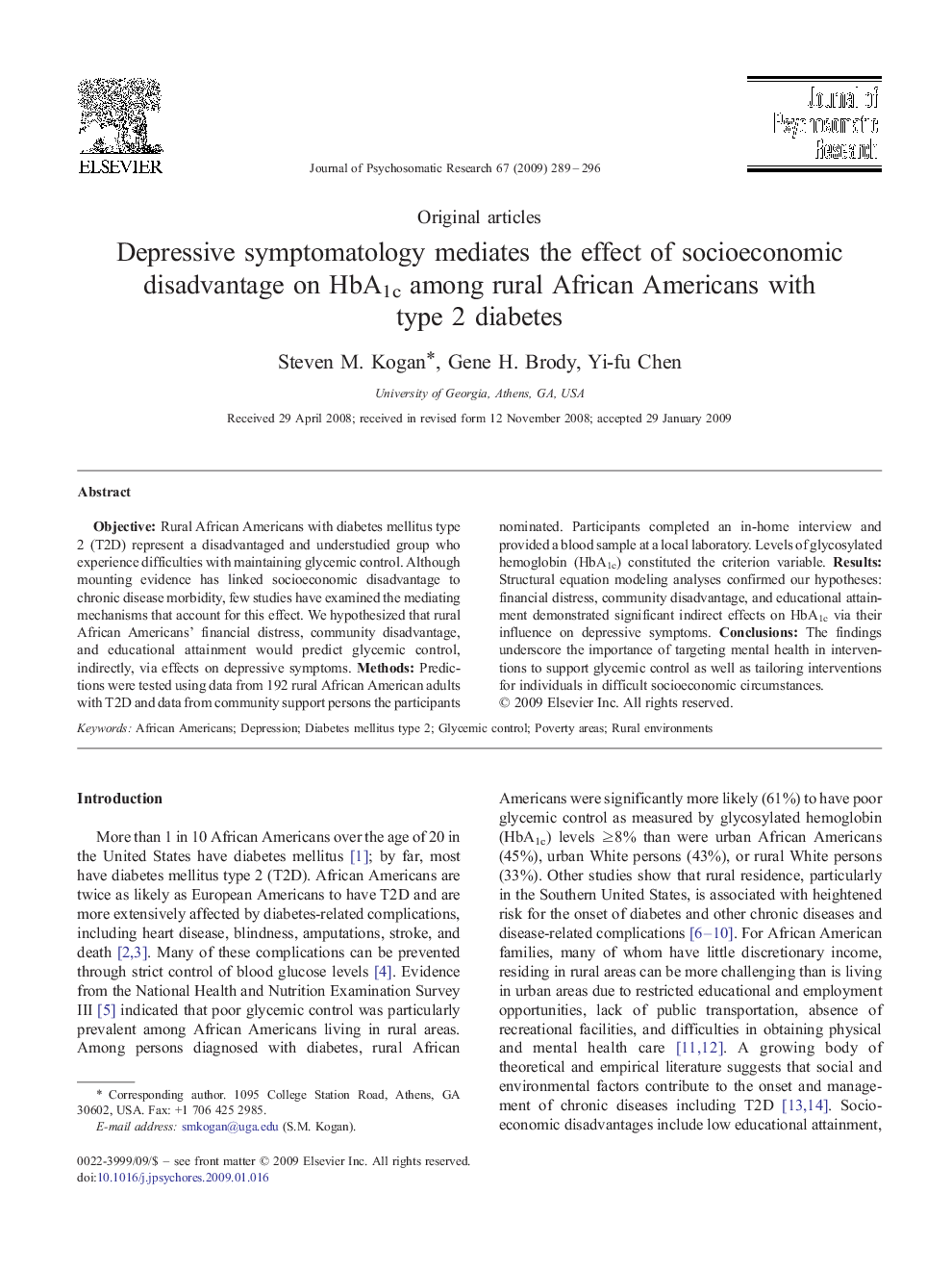| Article ID | Journal | Published Year | Pages | File Type |
|---|---|---|---|---|
| 950764 | Journal of Psychosomatic Research | 2009 | 8 Pages |
ObjectiveRural African Americans with diabetes mellitus type 2 (T2D) represent a disadvantaged and understudied group who experience difficulties with maintaining glycemic control. Although mounting evidence has linked socioeconomic disadvantage to chronic disease morbidity, few studies have examined the mediating mechanisms that account for this effect. We hypothesized that rural African Americans' financial distress, community disadvantage, and educational attainment would predict glycemic control, indirectly, via effects on depressive symptoms.MethodsPredictions were tested using data from 192 rural African American adults with T2D and data from community support persons the participants nominated. Participants completed an in-home interview and provided a blood sample at a local laboratory. Levels of glycosylated hemoglobin (HbA1c) constituted the criterion variable.ResultsStructural equation modeling analyses confirmed our hypotheses: financial distress, community disadvantage, and educational attainment demonstrated significant indirect effects on HbA1c via their influence on depressive symptoms.ConclusionsThe findings underscore the importance of targeting mental health in interventions to support glycemic control as well as tailoring interventions for individuals in difficult socioeconomic circumstances.
